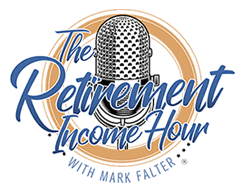Retirement Expenses

HOW LIVING EXPENSES CHANGE DURING RETIREMENT
There are some upsides to being a retiree – senior discounts, lower taxes, subsidized healthcare, and regular Social Security checks among them. On the other hand, mature Americans must contend with worrisome issues such as rising costs for medical care, long-term care, prescription drugs, and even basic necessities such as food and energy.
To determine your monthly expenses during retirement, you might start by dividing costs into two categories: those you believe will change and those you believe will remain largely the same.
COSTS YOU BELIEVE MIGHT CHANGE
- Housing expenses – particularly if you plan to live in your paid-off home or plan to downsize to a smaller dwelling
- Medical insurance – which may shift from a premium for HMO coverage to a Medigap policy
- Costs for dependents – if you have children you believe will be self-sufficient by the time you retire
- Entertainment and travel expenses – for some people, these might decline precipitously; for others, they might be far higher
- Taxes – most retirees find their combined tax burden is less than during their working years
- Automobile-related costs – retirees generally drive less than workers who commute to their jobs every day, thus spending less on maintenance, tolls, gasoline, etc.
- Monthly contributions toward retirement savings accounts – not only can you stop making this contribution, you might even consider spending it!
COSTS YOU THINK WILL REMAIN THE SAME
- Food
- Clothing – unless you previously spent large amounts of money on uniforms or other job-specific wardrobe items
- Household expenses – such as telephone, utilities, cable, etc.
DETERMINE YOUR INDIVIDUAL NEEDS
Once you analyze all this information, you can determine your estimated monthly income needs as well as how large of an emergency fund to establish. This fund should be held in a liquid form such as a money market account, which provides stability for your funds as well as ready access to them.
Consider reviewing your estimated needs at least annually, because circumstances can and do change in today’s fast-moving world.
Material discussed is meant for general illustration and/or informational purposes only and it is not to be construed as tax, legal, or investment advice. Although the information has been gathered from sources believed to be reliable, please note that individual situations can vary therefore, the information should be relied upon when coordinated with individual professional advice. Past performance is no guarantee of future results. Diversification does not ensure against loss. Source: Financial Visions, Inc.
This information is designed to provide a general overview with regard to the subject matter covered and is not state specific. The authors, publisher and host are not providing legal, accounting or specific advice to your situation.
